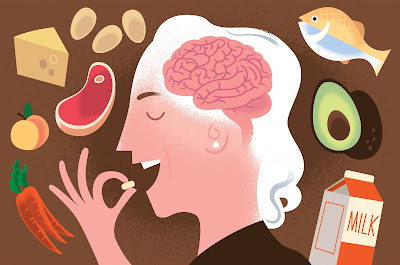Serotonin, often referred to as the “feel-good” hormone or neurotransmitter,
plays a pivotal role in regulating various aspects of mental health and emotional well-being. When there is an imbalance in serotonin levels, it can have a profound impact on mental health, potentially leading to conditions like depression, anxiety, and mood disorders. In this article, we delve into the intricate relationship between serotonin and mental health, exploring how disruptions in serotonin balance can affect our emotional equilibrium.
Understanding Serotonin:
Serotonin is a neurotransmitter, a chemical messenger that transmits signals between nerve cells in the brain. It’s involved in various functions, including mood regulation, sleep, appetite, and cognition. Serotonin is often associated with feelings of happiness and contentment, and it helps maintain emotional stability.
The Role of Serotonin in Mental Health:
Mood Regulation: Serotonin is perhaps best known for its role in mood regulation. It helps regulate mood by influencing factors like happiness, anxiety, and overall emotional balance. When serotonin levels are stable, individuals are more likely to experience positive emotions and cope effectively with stressors.
Depression: Imbalances in serotonin are closely linked to depression. Low levels of serotonin are associated with feelings of sadness, hopelessness, and a lack of interest in activities. Antidepressant medications, such as selective serotonin reuptake inhibitors (SSRIs), work by increasing serotonin levels in the brain to alleviate symptoms of depression.
Anxiety: Serotonin also plays a role in managing anxiety. When serotonin levels are low, individuals may experience heightened anxiety, restlessness, and an increased sense of unease. Adequate serotonin levels contribute to a calmer and more relaxed state of mind.
Sleep Regulation: Serotonin helps regulate the sleep-wake cycle. An imbalance in serotonin can lead to sleep disturbances, including insomnia. Sleep disruption, in turn, can exacerbate mental health issues.
Appetite and Weight: Serotonin influences appetite and the sensation of fullness. Imbalances can contribute to overeating or loss of appetite, potentially leading to weight fluctuations and associated mental health concerns.
Causes of Serotonin Imbalance:
Several factors can disrupt serotonin balance:
Genetics: Genetic factors can influence an individual’s susceptibility to serotonin imbalances and mental health conditions.
Diet: Diet plays a role in serotonin production, as the amino acid tryptophan is a precursor to serotonin. An inadequate intake of tryptophan or nutrients required for its conversion can affect serotonin levels.
Stress: Chronic stress can deplete serotonin levels, contributing to mood disorders.
Medications and Substances: Certain medications and substances, including some recreational drugs, can impact serotonin levels.
Conclusion:
Serotonin is a crucial player in maintaining mental health and emotional well-being. An imbalance in serotonin levels can lead to a range of mental health issues, including depression and anxiety. Understanding the intricate relationship between serotonin and mental health highlights the importance of holistic approaches to mental well-being, including lifestyle modifications, therapy, and, in some cases, medication. For those experiencing symptoms related to serotonin imbalance, seeking professional guidance and treatment is vital to restore balance and promote mental health and overall wellness
